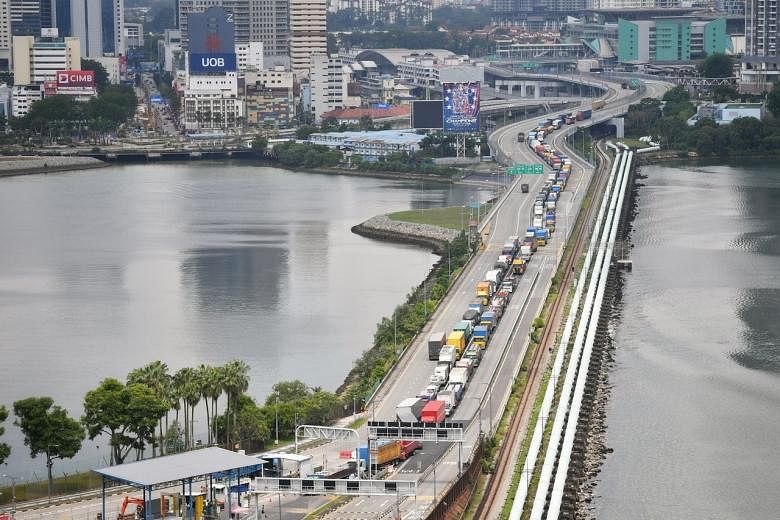Only about 50 per cent of Malaysian workers have returned to Singapore for work since cross-border travel resumed five months ago.
Various trade associations told The Straits Times that industries that rely heavily on employees from across the Causeway, such as renovation and food and beverage (F&B) services, are still struggling to cope with the manpower shortage.
Mr Sky Tan, president of the Singapore Renovation Contractors and Material Suppliers Association, said: "Only about 50 per cent of the Malaysian workers are back to work. Many of them were planning to return to Singapore only after Chinese New Year because of the high quarantine cost here."
A Covid-19 test and 14 days in a dedicated stay-home notice facility in Singapore costs $2,125, which is payable upon application and is non-refundable.
Renovation firms were one of the hardest hit as about 80 per cent of their skilled workforce is from Malaysia. Some companies in the sector had to shut for good last year. Mr Tan said renovations continue to be pricey due to the high labour cost for Malaysian skilled workers who would now need to pay for accommodation in Singapore.
Before the Covid-19 pandemic, many of these workers used to commute daily to Singapore for work.
Food and Beverage Management Association president Kung Teong Wah said Malaysians make up 35 per cent of staff in the food and beverage sector.
Most of them work in the kitchen as chefs, stewards and service crew.
Mr Kung said that since the border reopened last August, about 50 to 60 per cent of Malaysian workers have returned but the service and cleaning sector is still facing a huge manpower crunch, as "Singaporeans want to do only white-collared jobs".
Though salaries are 20 to 30 per cent higher for locals, the take-up rate for those positions previously filled by Malaysians are still low, said Mr Kung.
A Restaurant Association of Singapore spokesman said that even though eateries in the city area saw a dip in business due to more people working from home, "the consumption demand shifted to the heartland areas, resulting in increased demand for manpower to meet increased traffic".
The spokesman added: "With the shrinking pool of foreigners coming into Singapore, many F&B outlets are operating in an understaffed situation. The shortage ranges from 20 to 30 per cent."
Joyce Lim


